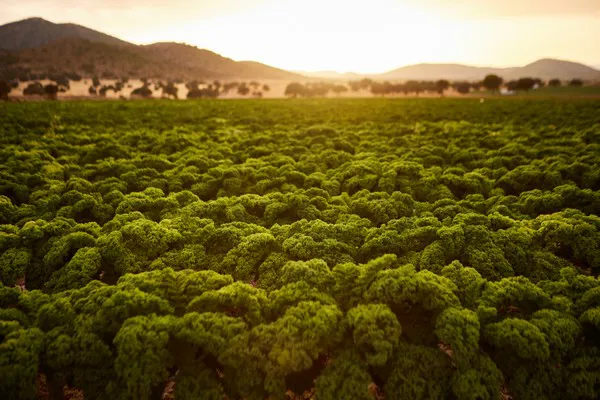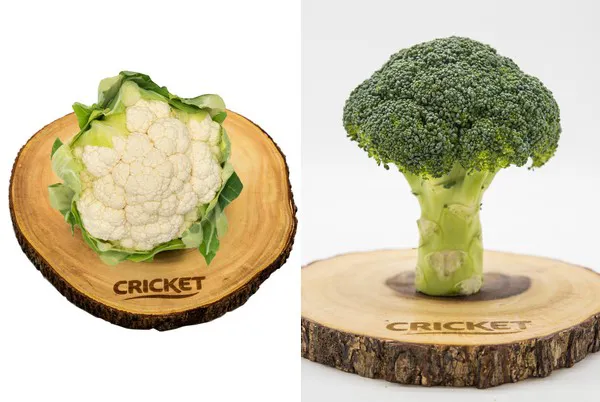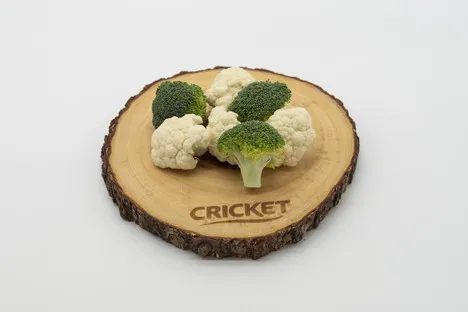The beginning of the Spanish broccoli and cauliflower export season has been completely different at origin to that of the previous season. The Spanish production is regulated by the cold weather, and there's high demand in Europe. For their part, Spanish producers and exporters are dealing with production cost increases that are putting the profitability of these products at risk.

"In the 2020/2021 campaign there was a very high supply in the first months, as local productions in northern Europe continued for longer than usual, up until December in some cases," says Sebastian Aguilar, Commercial Director of the Murcian company Campo de Lorca, better known for its brand Cricket. "At the same time, there was a significant amount of broccoli coming from free plantations in both the Region of Murcia and Extremadura. These volumes flooded the auctions and prices dropped sharply," he says.
But this year, according to Sebastián Aguilar, the beginning of the campaign has been "normal" at origin. "We have found that there haven't been any free plantings this year, so the production is under greater control. Many of the producers who planted independently have realized that broccoli is not a commodity, but rather a product for specialists."
In October, temperatures were higher than usual, so there was also a great production. The arrival of cold weather in November naturally regulated the broccoli and cauliflower production at source. "We still have plantations in high areas, with quite cold nights that are slowing down the production while the demand in Europe is strong."

However, while prices are not bad, they are occasionally failing to cover the high production costs that producers and exporters are assuming. "Production costs at origin have grown by between 17% and 20%. Many costs have risen, including those of packaging materials such as cardboard, wood and plastic -which are also subject to delays in the supply- energy, transport, fuel, etc. This adds to the unexpected rise in labor and water costs, which inevitably has to be reflected on sales prices, and this is is something that some customers get, but there are also others who don't. As far as broccoli and cauliflower are concerned, we work with very tight margins, so we have to share those costs between all links in the value chain," said Sebastian Aguilar and Antonia Piernas, Director of Marketing and Communication of Campo de Lorca and president of the Más Brócoli association.
Meanwhile, the food service channel is starting to be slightly affected by the new outbreaks of Covid-19 in Europe, according to representatives of this entity. "We don't know how far it's going to go. Right now, given our previous knowledge, measures are being implemented in advance out of panic, including the closure of restaurants and schools, or lockdowns. Perhaps the governments are rushing a little in their decisions," says Sebastián Aguilar.

Campo de Lorca is handling stable volumes of broccoli and cauliflower, with 3-5% annual growth in recent seasons. "We are growing somewhat more with cauliflower. There has been increased demand from our customers, who appreciate our brand's unique qualities. We have achieved a high degree of product specialization, both in terms of calibers and color," says Antonia Piernas. "Moreover, I think we can all agree that broccoli is fashionable and that is a perfect part of a healthy lifestyle. More and more is being discovered about its properties and the ways to cook and enjoy it. Thus, consumption in Spain is expected to continue growing in the coming years, following in the footsteps of other European countries."
Más Brócoli, an association that seeks to promote broccoli consumption, has presented a European program in which it is participating together with other associations. The goal is for broccoli to be associated with the world of sports thanks to the collaboration of various Olympic athletes. "This initiative, carried out at an international level, is improving the visibility of broccoli and highlighting the value of the Spanish production, seeking its differentiation."
For more information:
Toñi Piernas
Campo de Lorca
T: +34 968465960
a.piernas@campodelorca.com
campodelorca.com
